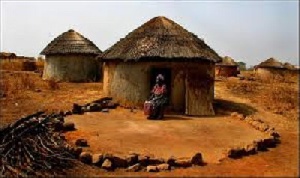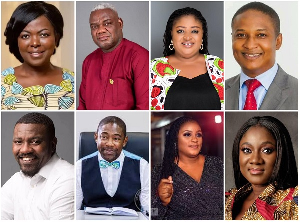In this piece, I make a case for witch-hunting as a religious freedom issue. Witch hunting, the search and purging of persons believed to be witches or perpetrators of occult harm, has seldom been explained in reference to religious freedom. Abuses of those suspected of spiritually or magically harming others, family, and community members have links to expressions of faith.
Quasi or actual traditional priests, pastors, or imams conduct witch-hunting activities in the communities; they use supposed religious processes and rituals to determine and certify inflicters of occult harm. Witch persecution is a faith-based and faith-motivated abuse.
Unfortunately, some people confuse efforts to address this religious freedom violation with attempts to deny Wiccans their right to practice their faith. Advocacy against allegations of witchcraft is not an effort to deny Wiccans their right to believe or practice their faith. This confusion has misrepresented and undermined efforts to stamp out abuses linked to witchcraft beliefs.
The confusion persists because people are unaware that there are two narratives of witchcraft playing out in the religious field. First is the notion of witchcraft as a religious belief and then witchcraft as a crime. Witchcraft as a distinct religion is alien to the African continent, but the idea of witchcraft as a crime is not.
The two narratives are distinct and should not be mixed. Witchcraft as practiced by Wiccans is a religion. The practice is an exercise of faith. Witchcraft is also a part of the traditional religious formation. It is a human right that should be protected and defended.
But witchcraft as addressed by the Advocacy for Alleged Witches and other anti-witch hunting campaigners speaks to the notion of witchcraft as a crime. Within the universe of the criminal narrative, alleged witches are designated and treated as criminals. In situations where the state does not reckon with this criminal element, mob or vigilante justice is meted out on the accused.
Again, witchcraft and witch hunting are English words, terms, and concepts that Western anthropologists use to (mis)categorize and (mis)represent certain phenomena in Africa. So witchcraft has conceptual and historical baggage that needs to be understood and untangled. The baggage that has made it difficult to situate and tackle this vicious phenomenon.
Furthermore, the belief that some people could harm others through magical or supernatural means predates the colonial religions of Christianity and Islam in Africa. This belief was a part of the precolonial, pre-Christian, and pre-Islamic, traditional religious belief system in Africa. For instance, witches are called amusu, among the Igbo, aje in Yoruba, sonya in Dagomba (Ghana), mchawi in Swahili, mbatsav in Tiv, ohe in Idoma, ifot in Ibibio, pou in Ijaw, opochi or enebe in Igbira, etc
Unlike in the West, African societies as known do not have a situation where people identified as 'witches' profess a particular religion. It is rather an element of the traditional religious faith/worship. Determination of whether an instance of misfortune is a result of witchcraft, ancestorcraft or godcraft is a part of the duties and responsibilities of indigenous religious priests.
People ward off attacks or instances of harm believed to have been caused by gods, ancestors, witches, spirits, etc using rituals. They are given certain objects to repel supposed occult harm placed in their bodies or houses. In some cases, some persons hire indigenous priests to neutralize, disable, and pray away supposed witchcraft and other believed harmful spiritual forces in the community.
In cases where the occult harm is narrowed down to witchcraft, these occult experts exorcize the harm; they conduct spiritual cleansing of the community. Witch hunters get rid of supposed harming agents, the alleged witches through murder, expulsion, trial by ordeal, or banishment of these individuals.
Communities and their leaders have different ways of tackling and addressing suspicions and accusations of witchcraft. But things changed following the advent of Christian and Islamic faiths and Eastern and Western colonialism.
Muslim and Christian missionaries, imperialists, theocrats, and jihadists demonized and fetishized traditional religious beliefs and practices They regarded African indigenous religions as inferior, primitive, illegitimate faith and belief practices, as a deviation from the true faith.
Christian and Muslim theocrats conflated and designated African indigenous religions as a form of witchcraft and indigenous African priests as witch doctors. By extension, they treated African traditional religion as evil, dangerous, and harmful.
For centuries, these negative stereotypes and misrepresentations characterized missionary and colonial activities and the relationship between colonial religious and indigenous beliefs in Africa. These negative perceptions have been the drivers of oppression and persecution of traditional religious worshippers and practitioners in Nigeria.
Colonial authorities introduced laws that criminalized witchcraft accusations and witch hunting including jungle justice, torture, and trial by ordeal. These laws targeted traditional religious activities and practitioners.
After centuries of Christian evangelization and the spread of jihadist Islam, colonial, post, and neo-colonial control of the African state, witchcraft accusations, and witch persecution have persisted in the region in more complex and complicated forms due to an interplay of national, and transnational religious interests and political economies.
Christian and Muslim elite took over the reins of government and the demonized impression of traditional religious beliefs and practices including 'witchcraft'. As a religious duty, Christian and Muslim clerics cleanse, exorcise, suppress, disable, and sometimes try violently to eradicate 'witchcraft'.
Colonial religions, Christianity and Islam, look down on traditional religions and have made their African adherents demonize their beliefs and practices. Early in this 21st century, Christian and Muslim elites rally against supposed traditional religious formations.
In countries where the law recognized witchcraft, there has been a miscarriage of justice because court officials liaise with traditional priests to prosecute alleged witches. They use and rely on ritual performances to convict and penalize suspected witches.
In countries, where the law does not recognize witchcraft and witchcraft accusation is prohibited, justice has been elusive. Witchcraft accusers, predominantly Christians, and Muslims, take their cases to traditional priests, pastors, and mallams who use rituals to confirm or exonerate alleged witches.
Witch persecution has very strong religious links and connections. Like blasphemy allegations, witchcraft accusation is a form of death sentence; an incitement to violence and abuse of the accused. Alleged witches suffer religious persecution and stigmatization.
Religious experts sanction, legitimize, and sometimes perpetrate these abuses. Human rights organizations should highlight witch-hunting as a freedom of religion issue.
Opinions of Thursday, 18 April 2024
Columnist: Leo Igwe



















